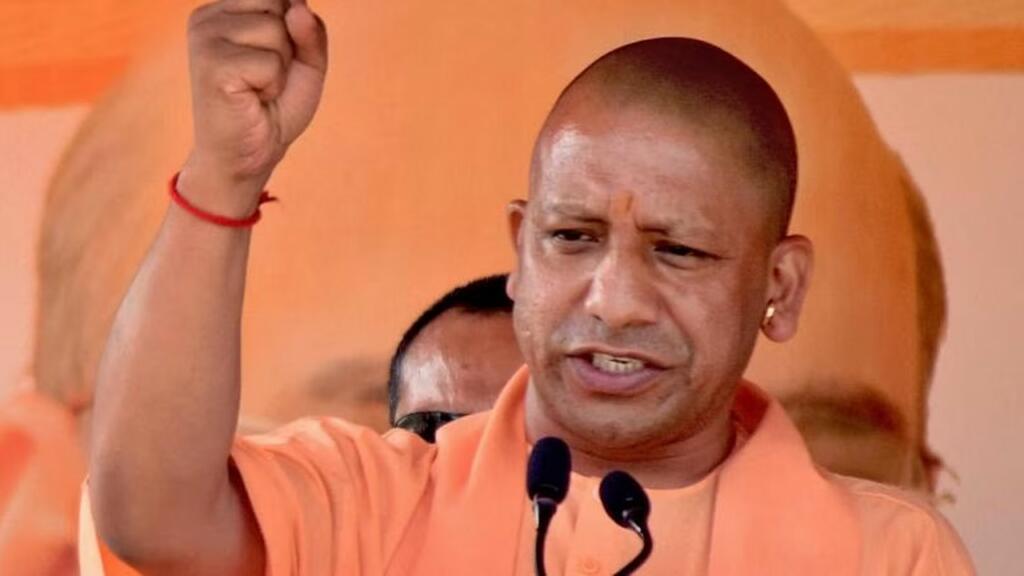Once notorious for being a breeding ground for every imaginable disease, Uttar Pradesh, India’s most populous state, has seen a remarkable transformation in recent years. In fact, it was this grim reputation that drew intense scrutiny and criticism towards Yogi Adityanath, who had just assumed office as the Chief Minister of the state, particularly following the notorious BRD case in 2017.
However, as we fast forward to 2023, a glimmer of hope shines through the once dark clouds of disease. Uttar Pradesh, for the very first time, has reported zero deaths due to Japanese Encephalitis (JE).
On September 9th, 2023, Yogi Adityanath took to X (formerly known as Twitter) to announce this remarkable achievement. He proudly declared that from January 1st to September 7th of the same year, there had been no recorded deaths in the Uttar Pradesh state due to Japanese Encephalitis, Chikungunya, and Malaria. It’s a remarkable turnaround from the past, and one that signifies a monumental shift in Uttar Pradesh’s healthcare landscape.
The Chief Minister reflected on the dark days of the past when thousands of children lost their lives to Encephalitis in the northern regions of the state. In response, the UP Government formed an inter-department committee in 2017 to combat Japanese Encephalitis. This dedication to addressing the issue at its core has paid off handsomely.
Adityanath proudly stated, “As a result, in the current year between January 1st and September 7th, no one has died due to Japanese Encephalitis, Chikungunya, and Malaria. The disease wreaked havoc in the state for four decades, and the state government has successfully controlled it within just five years. Our next target is its complete eradication.”
पूर्वी उत्तर प्रदेश के जनपदों में इंसेफेलाइटिस से हजारों बच्चों की मौत होती थी। वर्ष 2017 में @UPGovt ने अंतरविभागीय समिति बनाकर जापानी इंसेफेलाइटिस के नियंत्रण के लिए कार्य किए।
नतीजा, इस वर्ष 01 जनवरी से 07 सितंबर तक प्रदेश में जापानी इंसेफेलाइटिस, चिकनगुनिया व मलेरिया से एक… pic.twitter.com/i2w5dq0tPH
— CM Office, GoUP (@CMOfficeUP) September 9, 2023
Also read: Shivaji Raje’s “Wagh Nakh” set to make a grand comeback
Now, you might be wondering, what exactly is Japanese Encephalitis? Well, it’s a zoonotic viral disease caused by the Japanese Encephalitis virus. Zoonotic means it’s transmitted from animals, birds, and pigs, particularly those belonging to the family Ardeidae, such as Cattle egrets and pond herons, to humans. The disease can manifest as a febrile illness of varying severity. However, its true danger lies in its impact on the central nervous system, leading to severe complications, seizures, and even death. Japanese Encephalitis has a high fatality rate, and even those who survive may suffer from various degrees of neurological complications.
This remarkable turnaround in Uttar Pradesh’s healthcare scenario isn’t just a stroke of luck. It’s the result of dedicated efforts, strategic planning, and a commitment to the well-being of the people. The state government’s decision to form an inter-department committee in 2017 marked a turning point in the battle against Japanese Encephalitis. This committee brought together experts from various fields, creating a multi-pronged approach to tackle the disease.
To appreciate the significance of this achievement, let’s look at some data from the National Center for Vector Borne Diseases Control, Directorate General of Health Services, which falls under the Ministry of Health and Family Welfare, Government of India. According to their records, between January 1st and July 31st, 2023, a total of 17 cases of Japanese Encephalitis were reported in Uttar Pradesh. Astonishingly, not a single death occurred due to the disease during that period.
One of the key strategies was to focus on prevention through vaccination campaigns and vector control measures. Vaccination plays a crucial role in building immunity against Japanese Encephalitis, and the government made sure that vulnerable populations, particularly children, were adequately vaccinated.
Additionally, vector control measures were implemented to reduce the mosquito population responsible for transmitting the disease. These measures included mosquito net distribution, insecticide spraying, and awareness campaigns to educate people on how to protect themselves from mosquito bites.
Improving healthcare infrastructure was another vital aspect of the strategy. This included upgrading hospitals, increasing the availability of medical facilities in rural areas, and ensuring that healthcare professionals were well-trained to diagnose and treat Japanese Encephalitis promptly.
The combination of these efforts has borne fruit, as reflected in the zero deaths reported in 2023. However, the battle is far from over. Yogi Adityanath has set his sights on complete eradication, and the state government continues to work tirelessly to achieve this ambitious goal.
The success story of Uttar Pradesh in combatting Japanese Encephalitis serves as an inspiring example of what can be achieved through determination and focused efforts. It proves that even the most daunting challenges can be overcome when leaders and communities come together with a shared vision of a healthier, disease-free future. As Uttar Pradesh continues on its path towards eradicating Japanese Encephalitis, it serves as a beacon of hope for regions grappling with similar health crises worldwide.
Support TFI:
Support us to strengthen the ‘Right’ ideology of cultural nationalism by purchasing the best quality garments from TFI-STORE.COM
